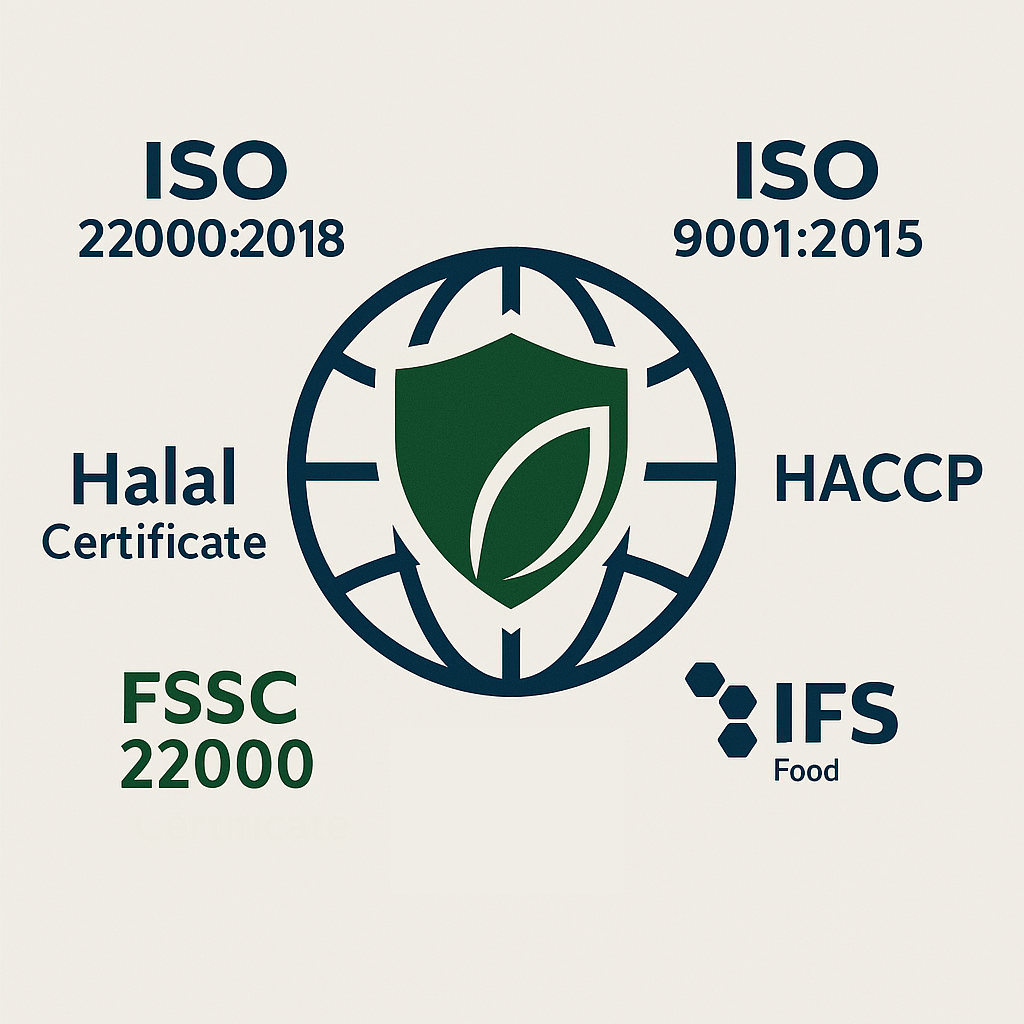
The Role of Quality and Standards in Food Export
Food export is one of the most important pillars of international trade. However, successful entry into global markets is not limited to production and packaging alone. Product quality and compliance with international standards are the main factors that build trust among foreign customers and pave the way for sustainable exports.
In this article, we explore the crucial role of quality and internationally recognized standards in food export.
The Importance of Quality in Food Export
Food quality goes far beyond taste and appearance. It also includes safety, health, shelf life, and compliance with global standards. International customers, particularly in European, American, and Middle Eastern markets, are extremely sensitive to these aspects.
A product lacking quality can:
- Be denied entry into target markets.
- Damage the brand’s reputation.
- Cause financial losses due to product returns or destruction.
International Standards in Food Export
1. ISO 22000:2018
A comprehensive standard for food safety management across the entire supply chain—from production to consumption. It ensures that food products are safe for consumers.
2. ISO 9001:2015
A quality management system focused on process improvement and customer satisfaction. It demonstrates that the company is consistently committed to enhancing the quality of its products.
3. HACCP
A preventive and analytical approach used to identify, assess, and control potential hazards in the production process. Many countries do not accept imported food products without HACCP certification.
4. IFS Food
A standard specifically designed for packaged food producers, developed by European retailers. Holding IFS Food certification allows manufacturers to access major European markets.
5. FSSC 22000
A global food safety standard that combines ISO 22000 with additional requirements specific to the food industry. It reflects a high level of commitment to quality and safety.
6. Halal Certification
An essential requirement for entering Islamic markets, especially in the Middle East and Southeast Asia. Beyond its religious significance, the Halal label is also associated with purity and product integrity.
The Impact of Standards on International Markets
Holding international certifications plays a decisive role in achieving export success. The benefits include:
- Easier access to European, American, and Asian markets
- Increased trust among global buyers and customers
- Reduced risk of shipment rejections
- Competitive advantage over rivals
- Strengthened international brand reputation
Tak Ava: A Leader in Food Export Quality and Standards
Tak Ava is one of the leading Iranian companies in food export, holding all key international certifications, including ISO 22000:2018, ISO 9001:2015, HACCP, IFS Food, FSSC 22000, and Halal.
Beyond certifications, the company is supported by a highly skilled Quality Control and Research & Development (R&D) team, dedicated to:
- Inspecting products based on customer needs and market-specific standards
- Guaranteeing the highest quality across production and packaging stages
- Offering innovative solutions to improve quality and global competitiveness
Conclusion
In food export, production alone is not enough. Quality and compliance with international standards are the real keys to entering global markets. Companies like Tak Ava, which place strong emphasis on these principles, have earned a distinguished position in international trade and gained lasting trust from global customers.


